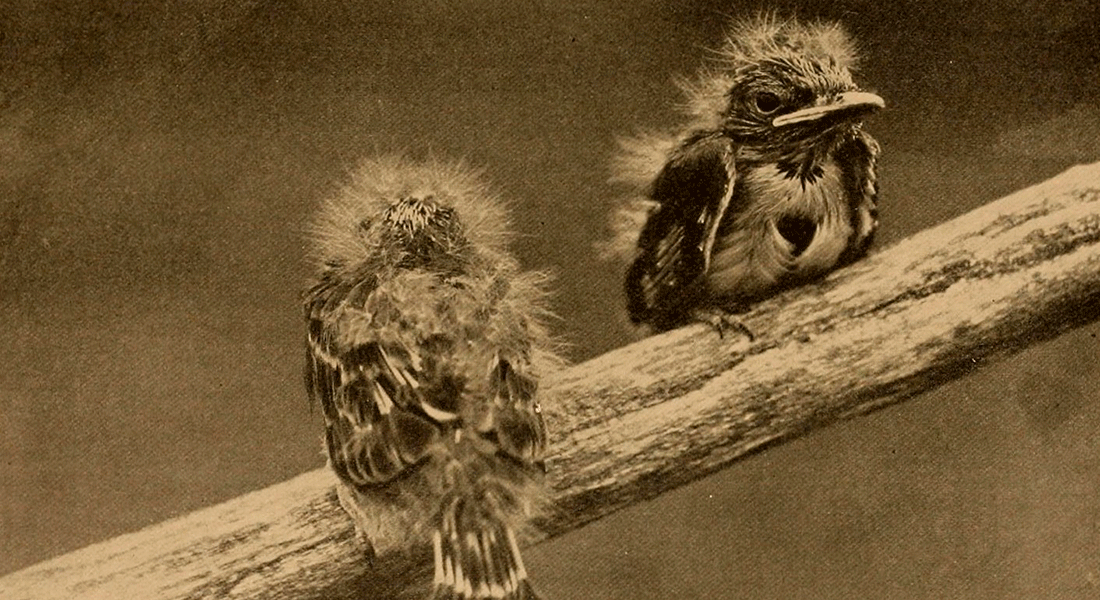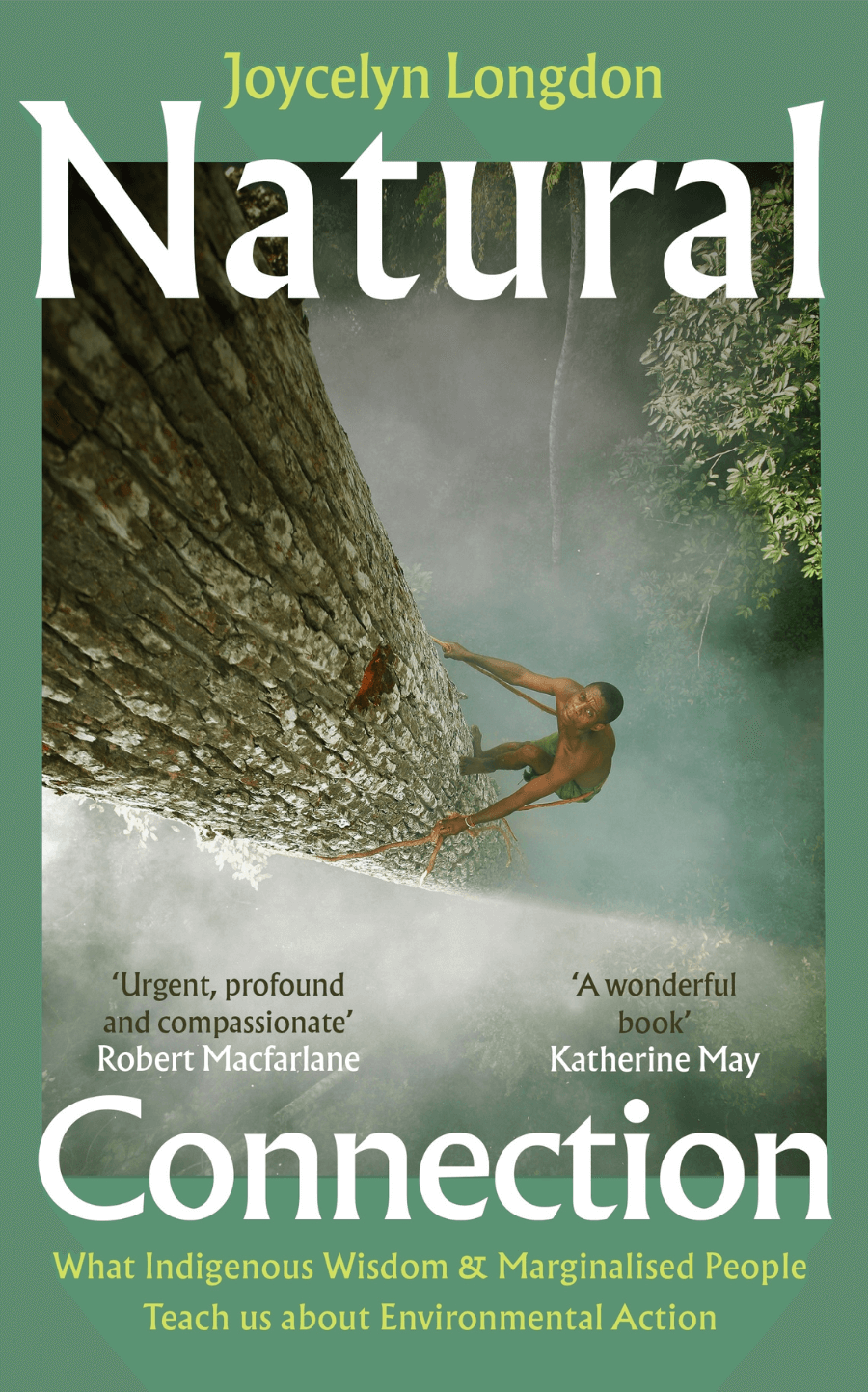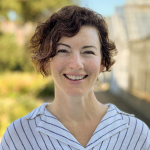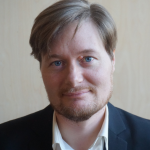Copenhagen Climate Sound Series #1: Conservation Justice
Talk with Joycelyn Longdon with Stefan Gaarsmand Jacobsen and Natalie Marie Gulsrud. Moderated by Kara Oehler (Institute for Climate Sound & Society).

In our opening event for the Copenhagen Climate Sound Series, we are very excited to host author and scholar Joycelyn Longdon. She will discuss how Indigenous wisdom, modern technology and finding awe in nature can inspire us to approach climate action as a shared goal.
Longdon’s new book, Natural Connection: What Indigenous Wisdom & Marginalized People Teach us about Environmental Action is a love letter to the living world and the frontline communities who have, and continue to pave the way for today's environmental movement in spite of traumatic pasts and presents. It is also an offering to anyone craving deeper relationships with the Earth and others amidst the intersecting ecological, climate and social crises.
Longdon writes: “We are living through a time of horrors: violence, genocide, and environmental collapse. And in these times, it often seems easier to accept the end of the world than to hope and act for its survival. I wrote this book to show that we are more resourced, more powerful and wiser than we have been made to believe. That we come from a lineage of individuals deeply connected to and fiercely protective of the Earth, individuals who continue to live through us today.”
Longdon presents 6 key alternative roots necessary to cultivate a natural connection between ourselves and the living world: RAGE, IMAGINATION, INNOVATION, THEORY, HEALING and CARE. These roots represent practices, teachings and considerations for environmental action inspired by the legacies and ongoing resistance of marginalised communities.
In addition to her book, Longdon will also present her current fieldwork. Her research centres on the design of justice-led conservation technologies for monitoring biodiversity with local forest communities in Ghana (her place of heritage), specialising in biodiversity monitoring through machine-learning powered bioacoustics – essentially Shazam for nature. Uncovering the inherent connection between ecology, sociology and technology, her research has disrupted a stagnant and often colonial and extractive field of study and made clear the need for a justice-centred approach to the application of technology in conservation.
Following Longdon’s talk, University of Copenhagen associate professor Natalie Marie Gulsrud will present. Gulsrud studies how meaningful relationships with nature can be created and sustained in rapidly growing cities, supporting both people and ecosystems. She’ll present her work on listening as a method for relational de-centering and care for the more than human.
We’ll finish with a discussion moderated by Kara Oehler, Director of the Institute for Climate Sound & Society with Joycelyn Longdon, Natalie Marie Gulsrud, and CApE Director Stefan Gaarsmand Jacobsen.
It’s open to everyone.
Joycelyn Longdon
Joycelyn Longdon is an award-winning environmental justice technologist, writer, communicator, and PhD Candidate at the University of Cambridge. Her PhD research centres on the design of justice-led conservation technologies for monitoring biodiversity with local forest communities in Ghana, specialising in biodiversity monitoring through bioacoustics.

As an environmental educator and storyteller, Joycelyn has made more accessible topics of environmental justice, climate colonialism, conservation, nature technology and design. She was 2022’s winner of the Emerging Designer London Design Medal, and was featured in British Vogue’s December 2023 ‘Forces for Change’ Issue. Most recently, she has been listed as one of Pique Action and Harvard Chan C-CHANGE's 2024 Climate Creators to Watch and as one of Country and Town House’s Future Icons Power People 2024. Her debut book, Natural Connection: What Indigenous Wisdom and Marginalised People Teach Us About Environmental Action, was published in April 2025.

Natalie Marie Gulsrud
Natalie Marie Gulsrud is an Associate Professor at the University of Copenhagen in the Section for Landscape Architecture, Planning, and Society. Her work focuses on how listening, care, and democracy can guide the way we plan and govern urban environments. She studies how meaningful relationships with nature can be created and sustained in rapidly growing cities, supporting both people and ecosystems. Her research highlights the importance of just, place-based approaches that include community voices in shaping climate resilience. Across her projects, she works to connect ethics of care with democratic planning to help build more inclusive and resilient cities.

Stefan Gaarsmand Jacobsen
Stefan Gaarsmand Jacobsen is director of CApE and PI of the Carlsberg Accelerate project Climate Justice Temporalities in Denmark (JusTiDe).
 Kara Oehler
Kara Oehler
Kara Oehler is Director of the Institute for Climate Sound & Society (ICSS) and an artist-in-residence at Third Ear. Integrating climate and biodiversity journalism and policy with sound-based scientific researchers and artists from around the world, ICSS works in partnership with institutions such as metaLAB(at)Harvard and University of Copenhagen, media organizations such as Museum of the UN’s Sounds Right (Denmark) and Ours to Protect (Ireland). She is also an embedded journalist with the Behavioural Ecology Group at University of Copenhagen and is an active participant in interdisciplinary convenings such as the International Bioacoustics Congress (IBAC). Oehler’s work appears in The New York Times, RadioLab, The Atlantic, Morning Edition, the Center for Investigative Reporting, Museum of Modern Art NY and others and has been recognized by Peabody, Rockefeller United States Artists, Radcliffe Institute for Advanced Study and others. Oehler has led and/or co-founded multiple pioneering, interdisciplinary organizations, including the Institute for Climate Sound & Society, COVID Tracking Project at The Atlantic, metaLAB(at)Harvard, Zeega and UnionDocs Center for Documentary Art.
About the Copenhagen Climate Sound Series
We are very excited to announce a new partnership with Institute for Climate Sound & Society at metaLAB Harvard, whose founder and executive director Kara Oehler is now based in Copenhagen. Our initial project together is the Copenhagen Climate Sound Series, a three-part event sequence hosted by Oehler that brings together pathbreaking scholars and artists working with sound, which has taken on an increasingly crucial role as a medium and research tool for understanding the impacts of climate change, and also as a way for people to engage with and listen to the non-human world, expanding our relationship to nature.
Combining the potential of new technologies like passive acoustic monitoring and AI with centuries of Indigenous knowledge and decades of work in fields such as bioacoustics, ecoacoustics, and sound studies, sound is being used to monitor species, support conservation justice, and explore new arenas of human and nonhuman relations. The series will feature pathbreaking leaders across these fields, including Joycelyn Longdon, Jana Winderen and Elodie F. Briefer.
About The Institute for Climate Sound & Society
The Institute for Climate Sound & Society (ICSS) brings together sound-based practices entangled with the climate crisis, offering new ways to sonically gather, analyze and represent data to understand changing ecosystems and decenter humans in public culture. The Institute for Climate Sound & Society supports this growing community and is engaged in innovative research, publishing, and gatherings with the mission to advance new forms of knowledge and expand research impact. We are based in Copenhagen and at the metaLAB at Harvard University.
